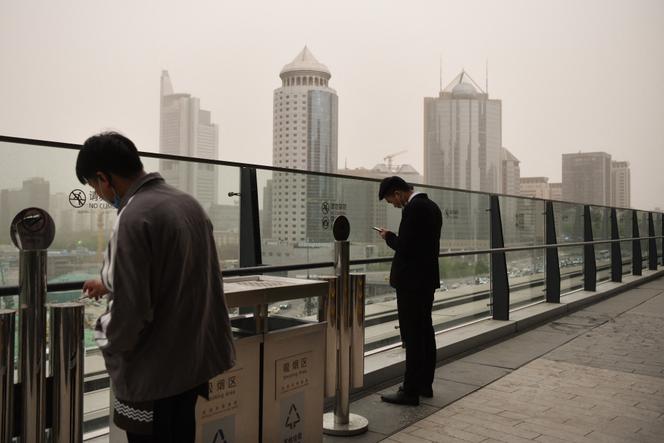


Sometimes they come directly to the lobby of the office tower in the business district of a major city. More often, they call on the phone. The men of China's security apparatus keep a close eye on this economist from an internationally recognized financial institution, and let him know it. If it involves a TV appearance, press quotes or a less-than-optimistic analysis of the state of the national economy, his smartphone will ring just after or the next day, but it will ring. It's impossible to ignore these men, and in any case, they're also in touch with the company's PR department.
In some cases, they'll want to go for a coffee. The content of the conversation is often the same: no technical details, but an exchange of the type: "Have you seen the latest government document? The economy is facing challenges, but it's doing relatively well," said an economist, requesting anonymity for security reasons. "The implicit message is that we're watching you closely. We used to be the last profession that could openly comment because there's a need for economics, but that's changed." He has witnessed online conferences, not public but open to investors, that suddenly cut off when one of the participants expressed a less cheerful view of the growth trajectory.
Business activity is slowing down, and citizens are wondering whether, as promised by those in power, tomorrow really will be better than yesterday. But the authorities are not about to let doubts creep in publicly. The practice of censorship, which was already widespread and has become increasingly prevalent in recent years on political and social issues, has largely spread to the economic field. Previously, this arena enjoyed a certain amount of leeway, certainly not to openly criticize the choices made by senior executives but to debate the situation, provide information on the health of companies or the outlook for equity markets.
This relative freedom was seen as a necessity if the economy was to function – companies, the stock market and investors needed information to make their decisions, and with China the catalyst for global growth, the news was generally encouraging. The business press, for example the magazines Caijing and then Caixin, founded by editor-in-chief Hu Shuli, had space for investigative reporting, albeit with limitations: Articles were often withdrawn or subjected to pressure. In any case, it enjoyed more leeway than the general-interest newspapers, which saw the list of subjects not to be covered, transmitted daily, grow longer and longer.
You have 71.12% of this article left to read. The rest is for subscribers only.
